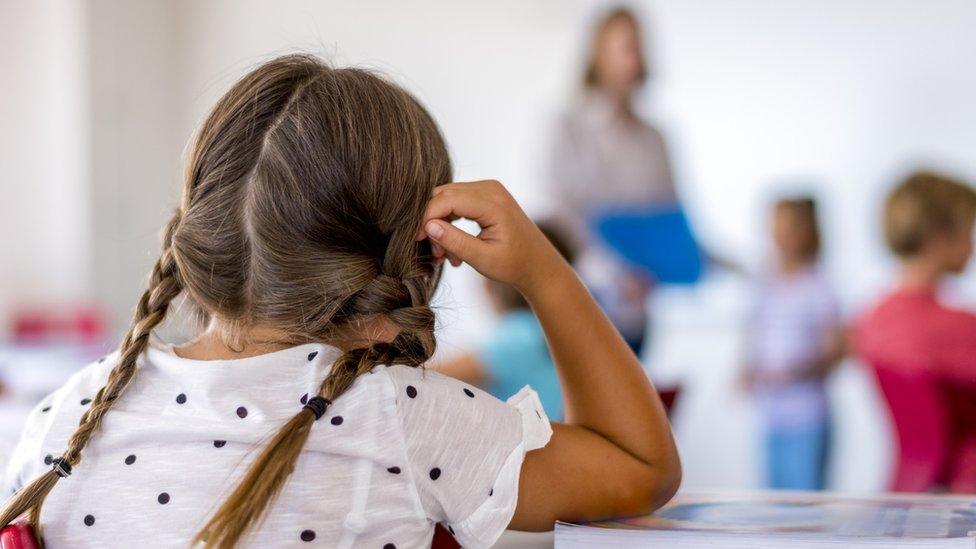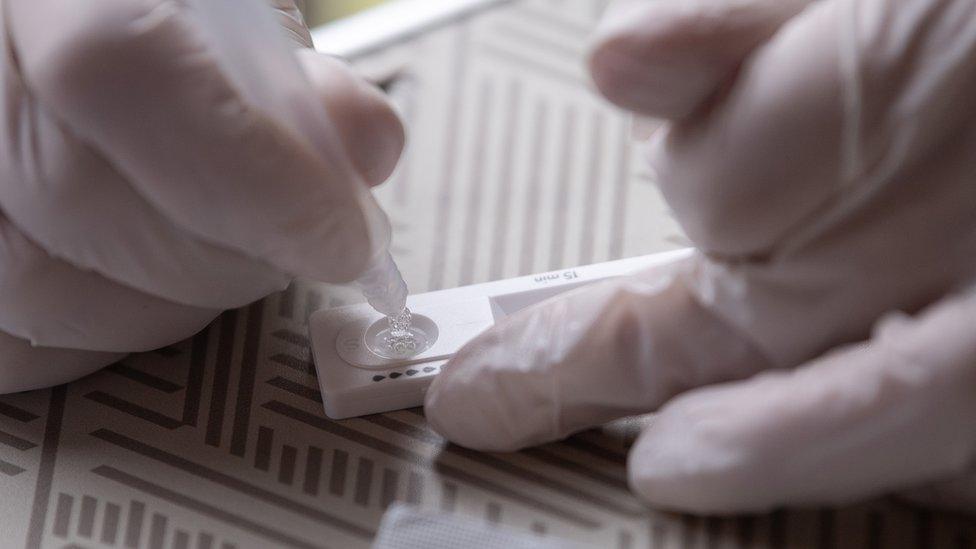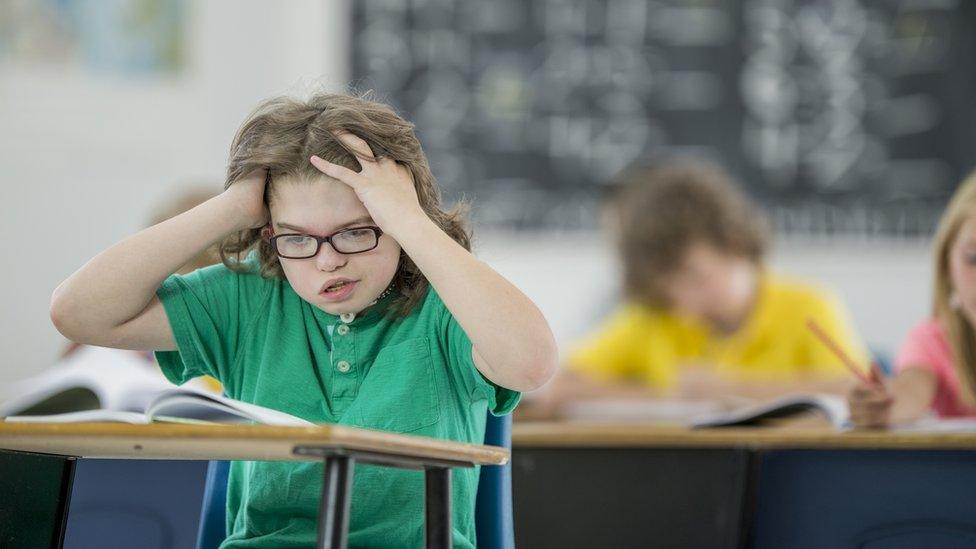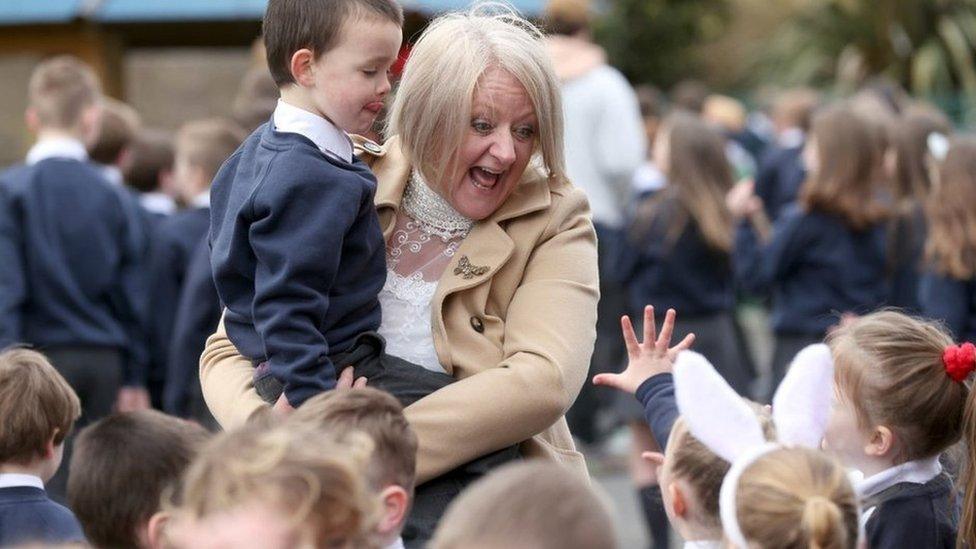Covid-19: 700 special school staff given priority for vaccine
- Published

Previously only a limited number of staff at special schools were to be given priority for vaccination
About 700 staff in special schools have been given priority for vaccination against Covid-19.
That is according to the Department of Education (DE).
Officials from the department told MLAs on Stormont's Education Committee that it represented about 25% of staff in special schools.
Committee Chair Chris Lyttle said many staff had been "failed and let down" by being excluded from the vaccination programme.
The Education Minister Peter Weir also told MLAs that schools were, "largely speaking", "a very safe place" against transmission of Covid-19.
Primary children in P4 to P7 and post-primary pupils in years 12 to 14 resumed face-to-face teaching on Monday 22 March.
Pupils in years P1 to P3, nursery and pre-school children, had already returned on 8 March for the first time since before Christmas.
Mr Lyttle asked Mr Weir what scientific and medical evidence had informed the return of schools.
"The position I suppose in terms of the medical and scientific advice has been that largely speaking, schools themselves - particularly with the mitigations - are a very safe place," Mr Weir replied.
"The concern was always around what the broader behavioural impact of a return to schools or indeed where schools were sitting and what impact that would have on the R rate.
"Any form of relaxation that the executive makes in any direction will have some level of impact."
Mr Weir said that the extent of Northern Ireland's vaccination programme and its impact was important as children and young people were "least at risk" of becoming seriously ill from Covid.
"The R rate itself is only really a measure, largely speaking to actually what really matters which is what are the level of hospitalisations? What are the level of deaths?" he said.
The minister also said that the Education Authority (EA) had received an initial supply of about 700,000 lateral flow device (LFD) tests for use in schools.

Staff and senior pupils in years 12 to 14 can take lateral flow tests in school
All school staff and senior pupils in years 12 to 14 are being encouraged to take LFD tests twice a week.
The committee's vice-chair, Sinn Féin MLA Pat Sheehan, however, asked what contingency plans were in place for schools if infections rose again.
Mr Weir said the executive had taken a more "cautious approach" on the return to pupils in primary schools than England, Scotland, Wales and the Republic of Ireland - but he admitted that some schools would face disruption.
"Will this be 100% for everybody all the time? No, I don't think that's likely to be the case," he said.
Health-led process
The executive had also previously agreed to prioritise some special school staff for vaccination.
However only a limited number of staff directly caring for clinically vulnerable children were given priority.
A departmental official, Ricky Irwin, told the committee that 700 special school staff had been identified as a result of what he said was a "health-led" process.
"It is probably about a quarter of teaching and non-teaching staff, which is around 2,600," Mr Irwin said.
"We were relying on the trusts and the consultant paediatricians to identify the lists of clinically extremely vulnerable children and then the schools identify the groups of staff that support those children."
Mr Weir said the executive consensus was that the vaccine roll out should be led by age rather than profession, but admitted it was "not probably" the ideal situation.
"Our ideal situation was that all special school staff would have been vaccinated," he said.
Mr Weir also said that around 300 schools had initially expressed an interest in running summer schemes or schools for some pupils in 2021.
- Published24 February 2021

- Published22 March 2021

- Published15 March 2021
